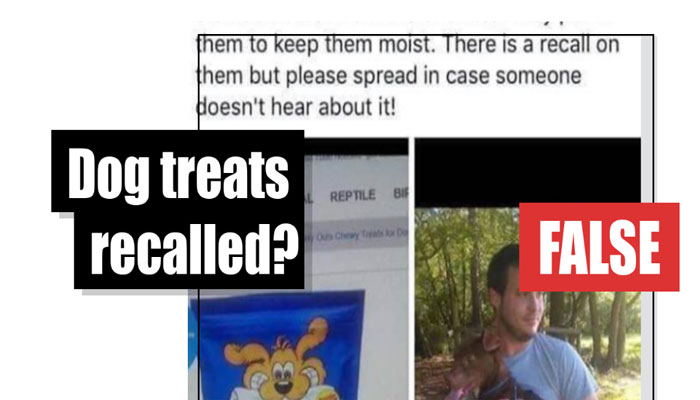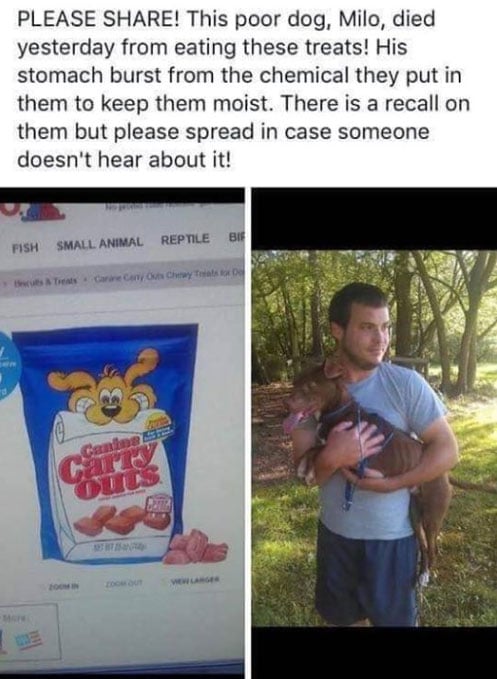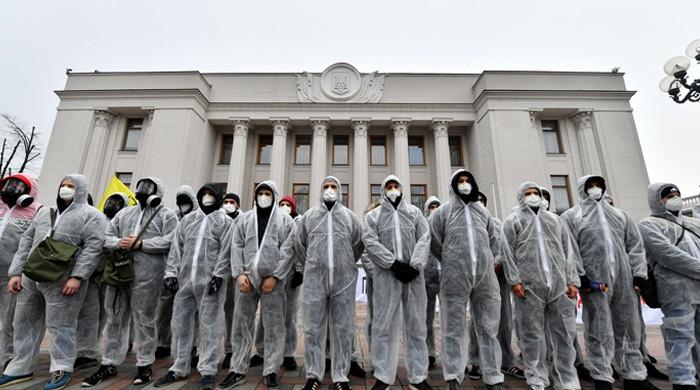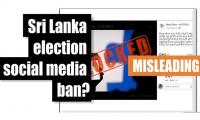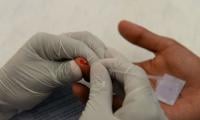A popular post warns internet users of the toxicity of Canine Carry Outs, a type of dog treat, alleging that they have been recalled after the death of a dog. This is false: the US brand has never been subject to a recall, and the hoax continues to circulate despite several rebuttals from the brand and pet health websites.
A widely shared Facebook post features a photo of the dog treats, next to that of a young man holding a dog. A caption warns: “This poor dog, Milo, died yesterday from eating these treats! His stomach burst from the chemical they put in to keep them moist. There is a recall on them but please spread in case someone doesn’t hear about it!”
The message might scare any pet owner into avoiding the dog treats altogether. However, the post is false.
“No Canine Carry Outs product are being recalled,” Ray Hancart, director of communications for the J.M. Smucker Company, to which the Canine Carry Outs brand belongs, told AFP.
These specific dog treats were never recalled in the United States or Canada. Health Canada’s list of current and past recalls, available here, shows no mention of the brand. A search through the equivalent resource in the US, the Food and Drug Administration’s (FDA) recall history, available here, shows no results either.
Propylene glycol, the false culprit
The Facebook post claims that Canine Carry Outs were recalled due to “a chemical they put in them to keep them moist,” which allegedly caused the dog’s stomach to burst.
Although the Facebook post currently circulating on social media does not specify what the ingredient is, a similar publication from 2015 warns online users of several dog food brands, including Canine Carry Outs, that cause illnesses in dogs due to their use of propylene glycol.
The ingredients list for Canine Carry Outs shows that propylene glycol is indeed one of the components of the dog treats, while Health Canada’s list of permitted food additives shows that the chemical is used as a humectant, in other words an additive that maintains humidity in food.
An extensive report on propylene glycol conducted in 2007 by the Canadian Council of Ministers for the Environment, upheld the FDA’s classification of the substance as generally recognized as safe (GRAS) for human consumption, adding that “this likely holds true for other terrestrial mammals.”
AFP Fact Check was unable to trace the origin of the photo of the dog that allegedly died after eating the dog treats
Although several websites have debunked the claim around Canine Carry Outs treats since 2016, the hoax and variations of it continue to circulate.
-
Fact-check: Pakistan's PM wears Sikh turban?
-
Fact-check: Sri Lanka election social media ban?
-
Fact-check: Misleading web posts add fuel to Bolivia crisis
-
Fact-check: HIV-infected needle attacks taking place in India?
-
Chinese official's wife shot dead during US trip?
-
Fact-check: Traffic light in Indonesia uses video mapping technology?
-
Fact-check: A photo of the oldest tortoise in Africa?
-
Fact-check: Canadian elections 2019: 35 million ballots printed, not votes counted
